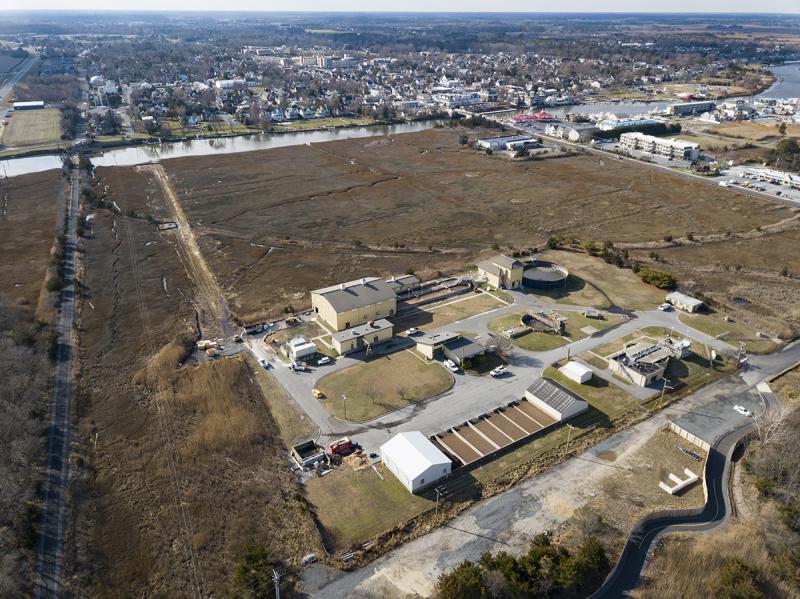Lewes wastewater plant to get new filters
The Lewes wastewater treatment plant now has two fully operational filter units with replacements for the rest of the facility on the way.
For the last two-and-a-half weeks, the facility’s wastewater treatment process has been compromised, leading to nearly 5 million gallons of partially treated effluent being discharged into the adjacent marsh and eventually the Lewes-Rehoboth Canal.
The facility was believed to be back online Dec. 28, 10 days after a malfunction forced plant operator White Marsh Environmental Services, affiliate of Tidewater Utilities Inc., to bypass membrane units that filter nutrients and organics. Effluent was redirected to holding tanks where it was disinfected before being discharged.
However, on Jan. 1, a pressure buildup behind newly installed filter membranes forced White Marsh to take the system offline again and discharge more partially treated effluent into the marsh. The second event took the filter membranes offline for about two hours.
Lewes Board of Public Works President Pres Lee said the new filters started to clog quicker than anticipated, so they were shut down to avoid damage. White Marsh operators called the manufacturer for recommendations, which were implemented, and no issues have occurred since, Lee said.
On Jan. 3, a second refurbished filter unit at the plant – there are four – went online, offering a backup system for the effluent treatment process.
The Lewes BPW, owner of the plant, has ordered a second unit of filters that is expected to arrive later this week. By the end of the month, Lee said, the BPW plans to order two additional units to ensure all four units are new. They plan to replace the refurbished unit that went online Jan. 3.
White Marsh intended to have the second filter unit up and running Jan. 2, but more time was needed to complete the last disinfection cycle.
The initial cause of the debacle is still under investigation, Lee said, but turbidity meters appear to be the culprit. Turbidity meters monitor the water quality as effluent exits the filters. Occasionally, he said, filtered wastewater is backwashed to clean the filters, but it appears the meters malfunctioned and allowed dirty water into a backwash cycle, which clogged the filters.
DNREC spokesman Michael Globetti continues to gather information about operational conditions that caused the recent bypass events at the Lewes plant. He said the incident is attributable to equipment malfunction, and not related to the volume of flow coming into the plant for treatment. The malfunction resulted in failure of all four of the facility’s membrane treatment units, requiring bypass of the treatment units until the plant could be equipped with replacement units or refurbish existing units.
The first unit put back online Dec. 28 was delivered from Canada. One unit is all that’s needed to treat the wastewater during the off-season. Until the second unit was brought online Jan. 3, there was no backup.
When the system initially malfunctioned, DNREC ordered immediate closure of shellfish harvest areas in the lower Delaware Bay due to health concerns from partially treated effluent. The closure of shellfish harvest areas will continue for 21 days from the time the bypass situation ended Jan. 1. The closure ordered by DNREC is based on U.S. Food and Drug Administration guidelines under the National Shellfish Sanitation Program, and provides adequate public health protection for pathogens of concern, including viruses. The closure applies only to clams, oysters and mussels – crabs, conch and fish species are not affected.
The Delaware Shellfish Advisory Council is set to meet Tuesday, Jan. 7, in Dover. While the Lewes situation does not appear on the agenda, Fisheries Section Administrator John H. Clark said the council has been briefed on the situation and council members may choose to discuss it. The meeting will be held at 7 p.m. in the DNREC Auditorium, 89 Kings Highway, Dover.





















































